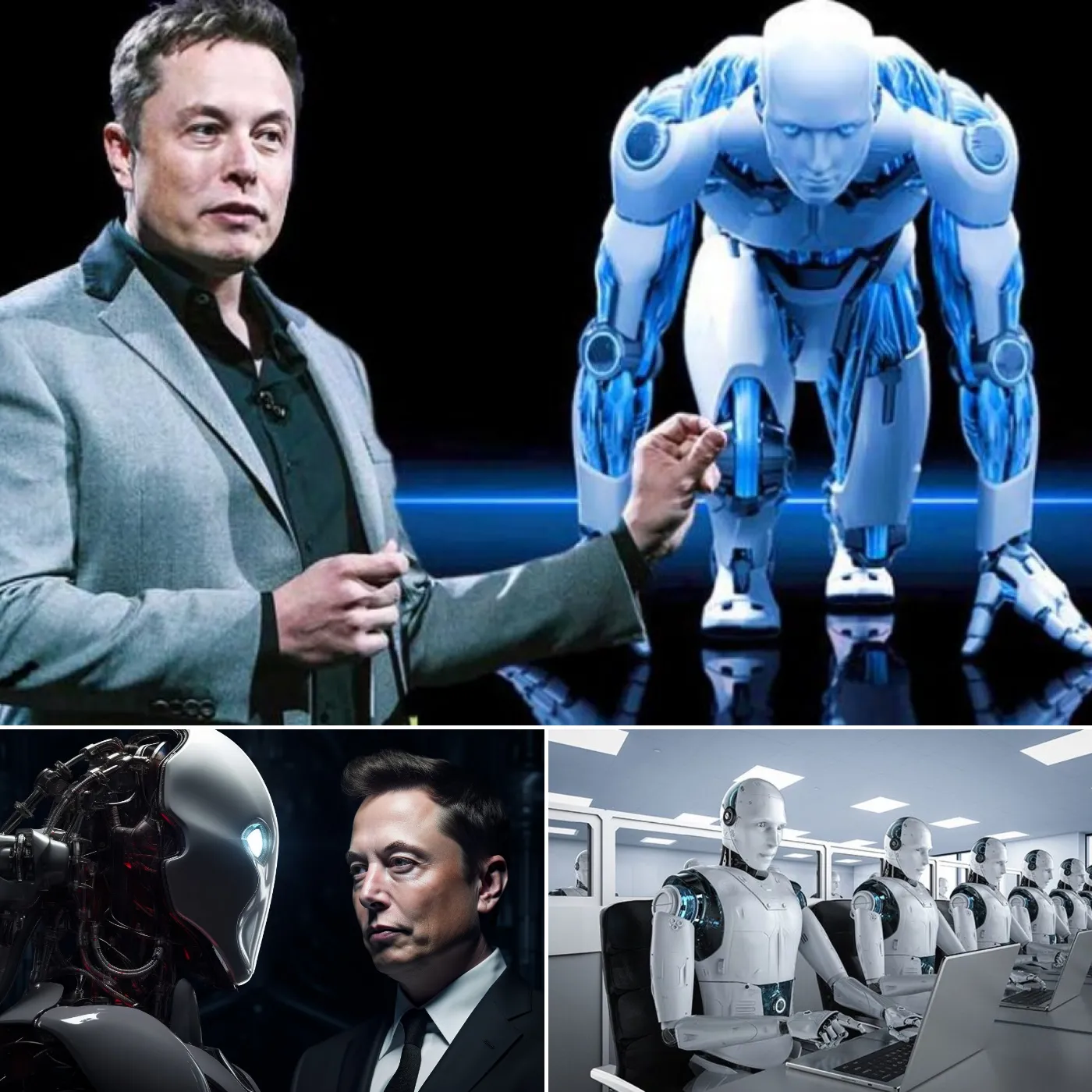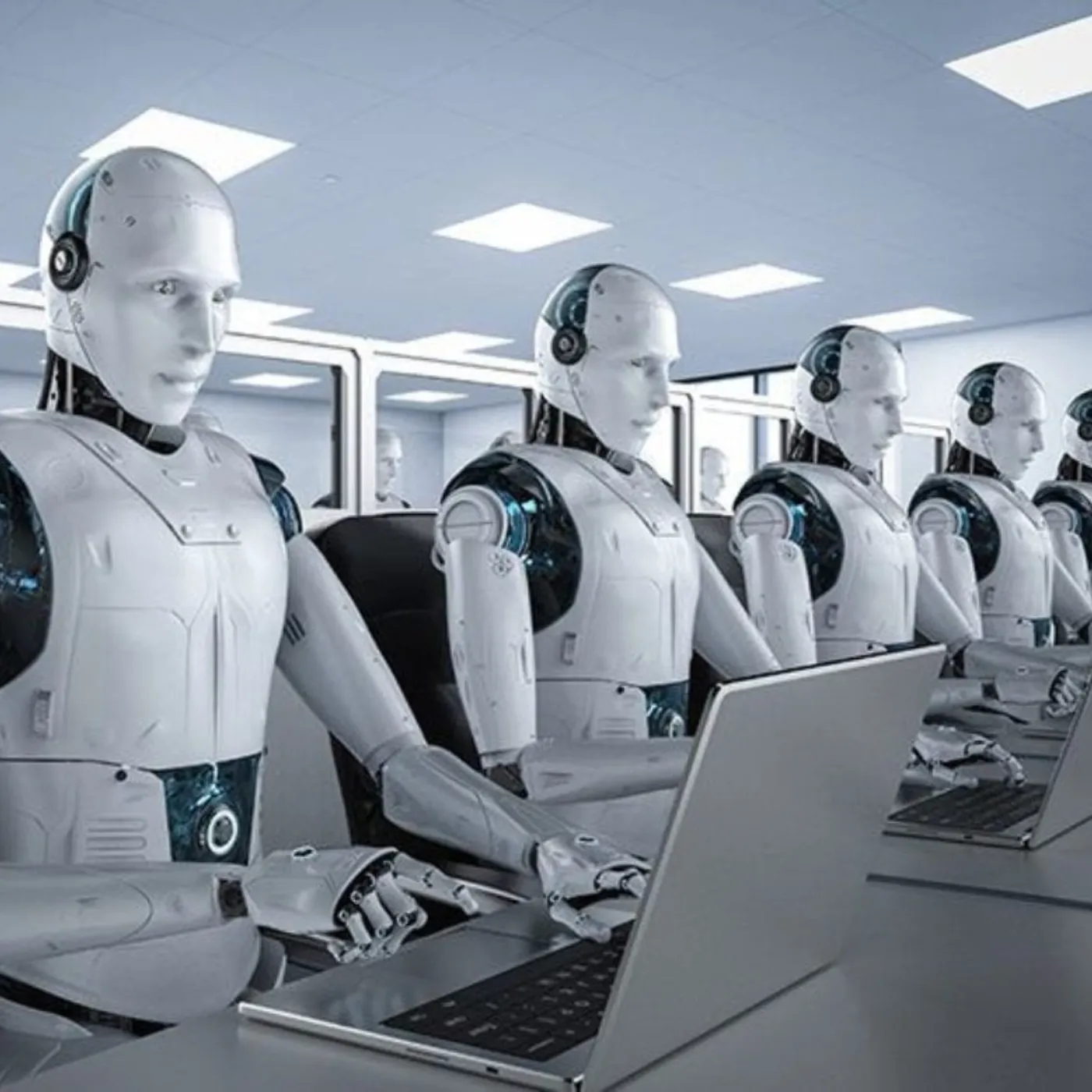

Unbelievable! Elon Musk’s AI Bots Predicted to Replace 80% of Jobs by 2035!
The rapid advancement of artificial intelligence (AI) is reshaping industries at an unprecedented pace, and Elon Musk is once again at the center of the conversation. In a shocking prediction, experts suggest that Musk’s AI bots, driven by groundbreaking technologies from companies like OpenAI, could replace up to 80% of jobs by 2035. This revelation has sparked both excitement and concern, leaving many to wonder what the future of work will look like in a world dominated by intelligent machines.

Table of Contents
Elon Musk’s Role in Advancing AI
Elon Musk, the visionary entrepreneur behind Tesla, SpaceX, and Neuralink, has long been an advocate for advancing AI technologies. As one of the co-founders of OpenAI, Musk has been instrumental in developing cutting-edge AI systems capable of performing tasks previously thought to be exclusive to humans. From natural language processing to robotics, the capabilities of these AI bots are evolving rapidly, setting the stage for a major disruption in the workforce.
In recent years, Musk has also expressed concerns about the ethical implications of AI. He has warned about the potential risks of unregulated AI systems and emphasized the importance of creating AI that benefits humanity as a whole.
“Artificial intelligence is advancing faster than most people realize,” Musk said in a recent interview. “We need to ensure it’s used responsibly, but we also need to prepare for a future where many jobs as we know them today may no longer exist.”
How AI Bots Are Changing the Job Market
AI bots powered by machine learning and automation are already transforming industries such as manufacturing, customer service, and logistics. The prediction that these bots could replace 80% of jobs by 2035 highlights the scale of this technological shift.
Key Industries at Risk
Manufacturing: Robotics and AI-driven automation are increasingly taking over assembly lines, improving efficiency but reducing the need for human labor.
Customer Service: AI chatbots are becoming more sophisticated, handling customer inquiries with accuracy and reducing the need for human agents.
Transportation: Autonomous vehicles, including trucks and delivery drones, threaten to disrupt jobs in the transportation sector.
Healthcare: AI tools are streamlining diagnostics, treatment planning, and administrative tasks, potentially replacing roles in these areas.
The Rise of Intelligent Machines
AI bots are not only replacing manual labor but are also encroaching on cognitive and creative jobs. AI systems like OpenAI’s GPT models can write content, compose music, and even develop software, raising questions about the future of knowledge-based professions.
Opportunities in the AI Era
While the prediction of mass job displacement is concerning, the rise of AI bots also presents opportunities for innovation and growth. As new technologies emerge, so do new industries and roles that require human creativity and oversight.
Jobs of the Future
AI Development and Maintenance: Skilled professionals will be needed to design, program, and maintain AI systems.
Ethical Oversight: Ensuring AI operates within ethical boundaries will create demand for experts in AI ethics and regulation.
Creative and Emotional Roles: Jobs that require human creativity, empathy, and complex decision-making will remain valuable.
Reskilling the Workforce
Governments and organizations are increasingly focusing on reskilling programs to prepare workers for the AI-driven economy. Investing in education and training will be crucial to helping individuals adapt to new roles and thrive in a changing job market.
Public Reactions to AI Job Displacement
Elon Musk’s prediction has sparked intense debate among the public and policymakers. While some view AI as a tool for progress, others worry about the societal impact of widespread job loss.
Social media platforms are filled with discussions about the future of work. Comments range from excitement about the possibilities AI could bring to concerns about economic inequality and job security.

“If 80% of jobs are replaced, what happens to the people left behind?” one user wrote. Another commented, “AI could free us from mundane tasks and let us focus on creativity and innovation.”
Elon Musk’s Vision for the Future
Despite the potential challenges, Musk remains optimistic about humanity’s ability to adapt. He has advocated for the implementation of universal basic income (UBI) as a solution to support those affected by job displacement. Musk believes that by embracing AI responsibly, society can create a future where people have more time to focus on personal growth, innovation, and leisure.
“AI will change everything,” Musk said. “The question is, how do we ensure it changes things for the better?”
Preparing for an AI-Driven World
As we approach 2035, the need to address the implications of AI on employment becomes increasingly urgent. Governments, businesses, and individuals must work together to:
Promote ethical AI development: Establish guidelines to ensure AI benefits humanity and minimizes harm.
Invest in Education and Training: Equip workers with the skills needed to succeed in AI-driven industries.
Foster Innovation: Encourage the creation of new industries and roles that complement AI capabilities.
Elon Musk’s prediction that AI bots could replace 80% of jobs by 2035 is a wake-up call for society to prepare for an era of unprecedented technological change. While the potential for disruption is significant, so too are the opportunities for progress and innovation. By embracing the possibilities of AI and addressing its challenges head-on, humanity can shape a future where technology empowers rather than displaces us.

The rise of AI is inevitable, but its impact depends on the choices we make today. As Musk’s vision continues to unfold, one thing is certain: the conversation about AI and its role in our lives has only just begun.


















